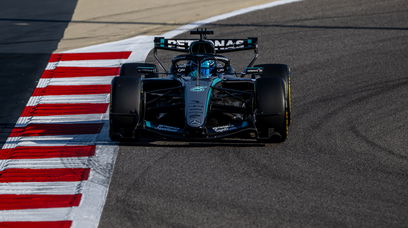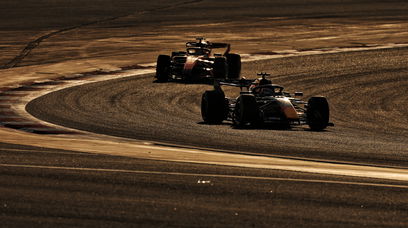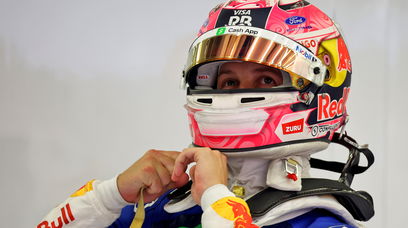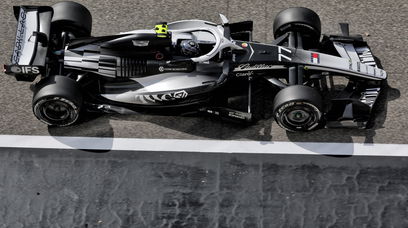There remain many unknowns about how the first ever Sprint Qualifying will play out when the format makes its debut at the 2021 British Grand Prix. But one thing for certain is that the 30-minute race will change the F1 points system, given that the top three finishers will be awarded points. This development in how points are allocated means that the sport will undergo yet another change to the scoring system. Since the early days of the 1950s, Formula 1 has continually evolved and experimented with just how much - or indeed how little - drivers are rewarded for their results. RacingNews365.com takes a look back at each stage of the F1 points system's evolution.
1950-1957: Points for top five, one point for fastest lap
When Formula 1 began, points were award to the top five finishers - the allocation was 8-6-4-3-2. Ultimately this did not give a huge advantage to the winner, given that the difference between first and second place was only two points. One point was also given for fastest lap, a system that has been resurrected in recent years.
1958-1959: Points for top five but no points for sharing, one point for fastest lap
In the sport's early years, there were some occasional changes to the points based on particular circumstances; for example, sometimes the fastest lap may be awarded to more than one driver due to how difficult it could be to accurately record the times. Additionally, there were occasions where drivers would hand their car over to another driver given the longer race distances in this era, meaning that points would be shared between both pilots. However, in 1958 races were made shorter, and it was decided that drivers who split the race between them would not receive any points.
1960: Points for top six, none for fastest lap
The points system underwent another change in 1960, whereby the top six finishers would be awarded points using the allocation of 8-6-4-3-2-1. The additional point for fastest lap was also dropped. Whilst an extra points-paying position was on offer, the first race of the season only awarded the top five due to the fact that the drivers in the third-placed car had split the drive between them. Given the previous alteration in 1958, this meant neither driver was eligible for points.
1961-1990: Points for top six, increase for the win
From 1961 onwards, the longest points-scoring format in the history of Formula 1 was introduced. The value of a win was increased to nine points, meaning the allocation remained as 9-6-4-3-2-1 throughout the 1960s, 1970s and 1980s.
1991-2002: Points for top six, a further increase for the win
The distribution of points underwent a small change in 1991 by boosting the value of a win to 10 points, so the allocation became 10-6-4-3-2-1. However, the biggest alteration was the fact that F1 abolished the previous system of deciding each driver's points tally at the end of the year based on their best-placed finishes of the season, a practice that had been used since the early days of the sport. This rule would count a particular number of race results; to take an example, the 1977 Formula 1 season counted each driver's best 15 results out of a total of 17 races. This had been used to account for poor reliability but, as cars became less prone to such failures, the system was changed in 1991, meaning that every race result would count towards a driver's place in the World Championship.
2003-2009: Points for top eight
Following Michael Schumacher's dominance of the 2002 season with Ferrari, rule changes were ushered in for 2003 in the hopes of increasing competition. This included extending the points system to award the top eight finishers, with points allocated 10-8-6-5-4-3-2-1.
2010-2013, 2015-2018: Points for top 10, increase for the win
2010 saw a big change to the points system. The top 10 finishers would be rewarded, and the value of a win increased dramatically to 25 points. This changed the allocation to 25-18-15-12-10-8-6-4-2-1. As well as providing a greater prize for the winner, this move also meant that a non-finish was even more of a loss, especially for those in the title fight.
2014: Double points for the finale
Formula 1 decided to experiment in 2014 by introducing double points for the final race of the season. The idea was not well received by fans. Ultimately the change proved to be irrelevant in the end; Lewis Hamilton had a 17-point lead over closest rival Nico Rosberg going into the season finale in Abu Dhabi, meaning that the new system did not extend the title battle. During the Grand Prix Rosberg dropped out of the points due to issues with his car, so the double points concept had no bearing. The system was dropped and has not been brought back since.
2019-2020: One point for fastest lap returns
After being ousted decades earlier, the point for setting the fastest lap was brought back in 2019. This change has resulted in drivers often making a late pit stop for fresh tyres in order to try to take the extra point on offer.
2021-?: Points for Sprint Qualifying
In another first for F1, Sprint Qualifying will be trialled at three race weekends during the 2021 season. Points will be allocated to the top three finishers, with the winner receiving three points, the second place driver receiving two and one point will be awarded for third place. The usual scoring system will remain for the main Grand Prix. This means that there will be even more points on offer during the weekends where the sprint event is held. The British Grand Prix will be the first to host Sprint Qualifying, and it remains to be seen whether this latest change to the rules will be a success - or will quietly disappear in the manner of 2014's double points situation.
Most read







